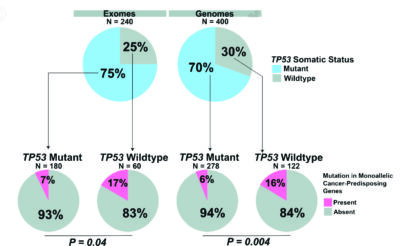A new study finds that 9% of all Esophageal Adenocarcinoma (EAC) patients have mutations in cancer-predisposing genes, potentially opening the door for genetic screening.
 The research by Mass General Cancer Center investigators is published in Gastroenterology. Corresponding author Manish Gala, MD, of the Division of Gastroenterology at Massachusetts General Hospital (MGH) said, “To put that into perspective, the prevalence of such mutations is seven to 10 percent in pancreatic adenocarcinoma, and genetic testing has been recommended for all individuals diagnosed with this cancer. Given the similar prevalence in EAC, universal genetic testing should be considered for this cancer as well.”
The research by Mass General Cancer Center investigators is published in Gastroenterology. Corresponding author Manish Gala, MD, of the Division of Gastroenterology at Massachusetts General Hospital (MGH) said, “To put that into perspective, the prevalence of such mutations is seven to 10 percent in pancreatic adenocarcinoma, and genetic testing has been recommended for all individuals diagnosed with this cancer. Given the similar prevalence in EAC, universal genetic testing should be considered for this cancer as well.”
The findings may also provide important insights into the causes of progression to the disease and new possibilities for screening and treatment.
The researchers believe that simply having a mutation did not trigger the development of cancer. Rather, they believe their research shows that the development of Barrett’s Esophagus, which is caused by acid reflux, and other environmental factors may be the triggers for the development of this cancer. They believe their findings suggest that because these “germline” cancer-predisposing mutations are present at conception and thus are found in every cell of a patient, they accelerate genomic instability, and that increases the likelihood of Barrett’s Esophagus progressing to cancer.
Learn more at https://www.massgeneralbrigham.org/en/about/newsroom/press-releases/identification-genetic-drivers-esophageal-cancer
Read the full study HERE.
